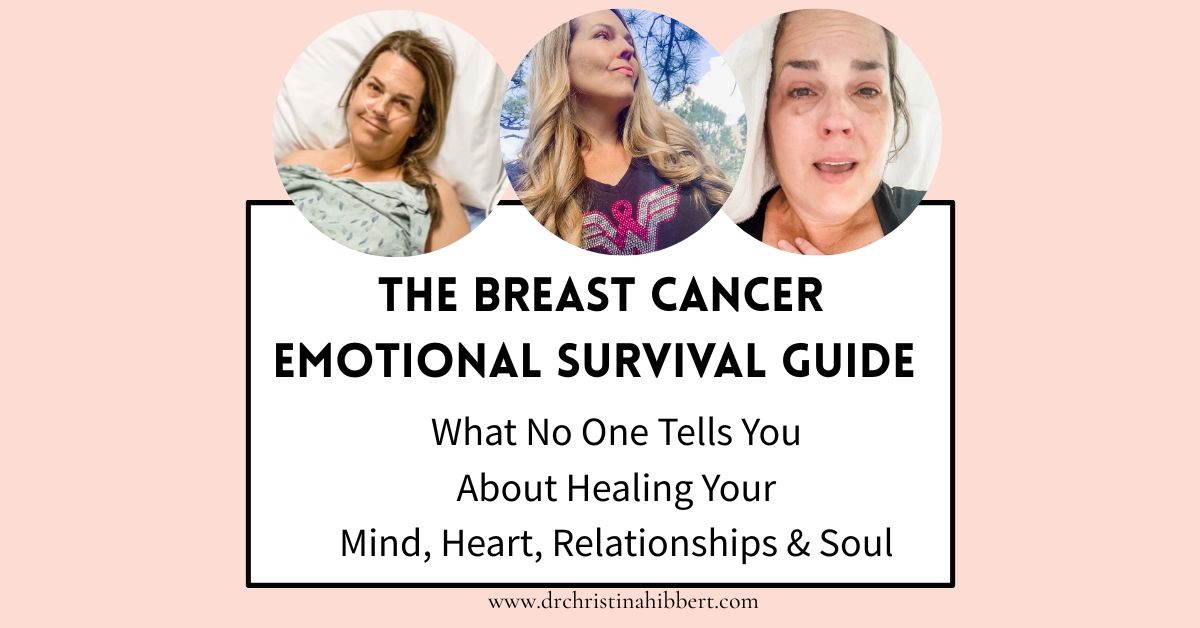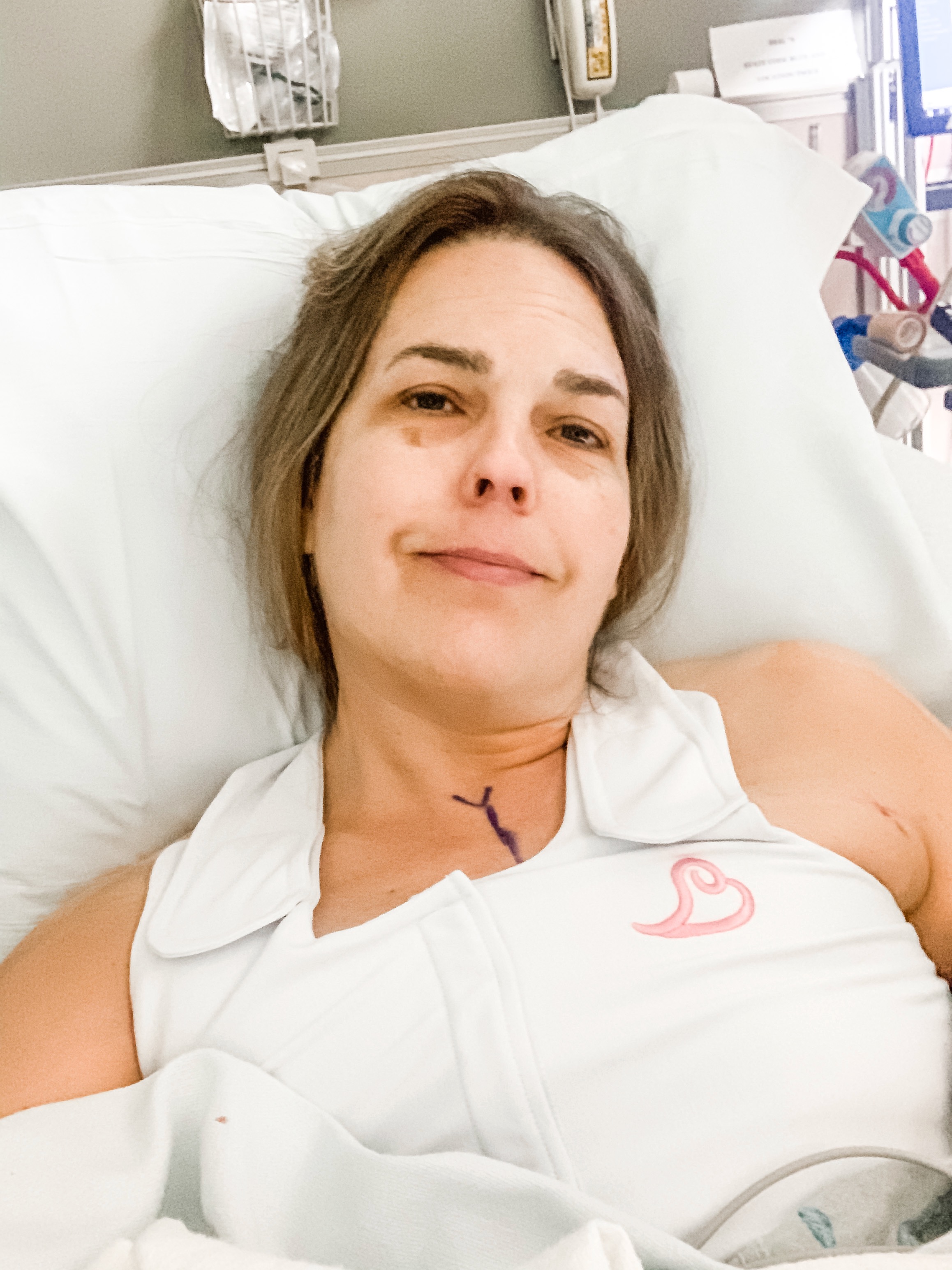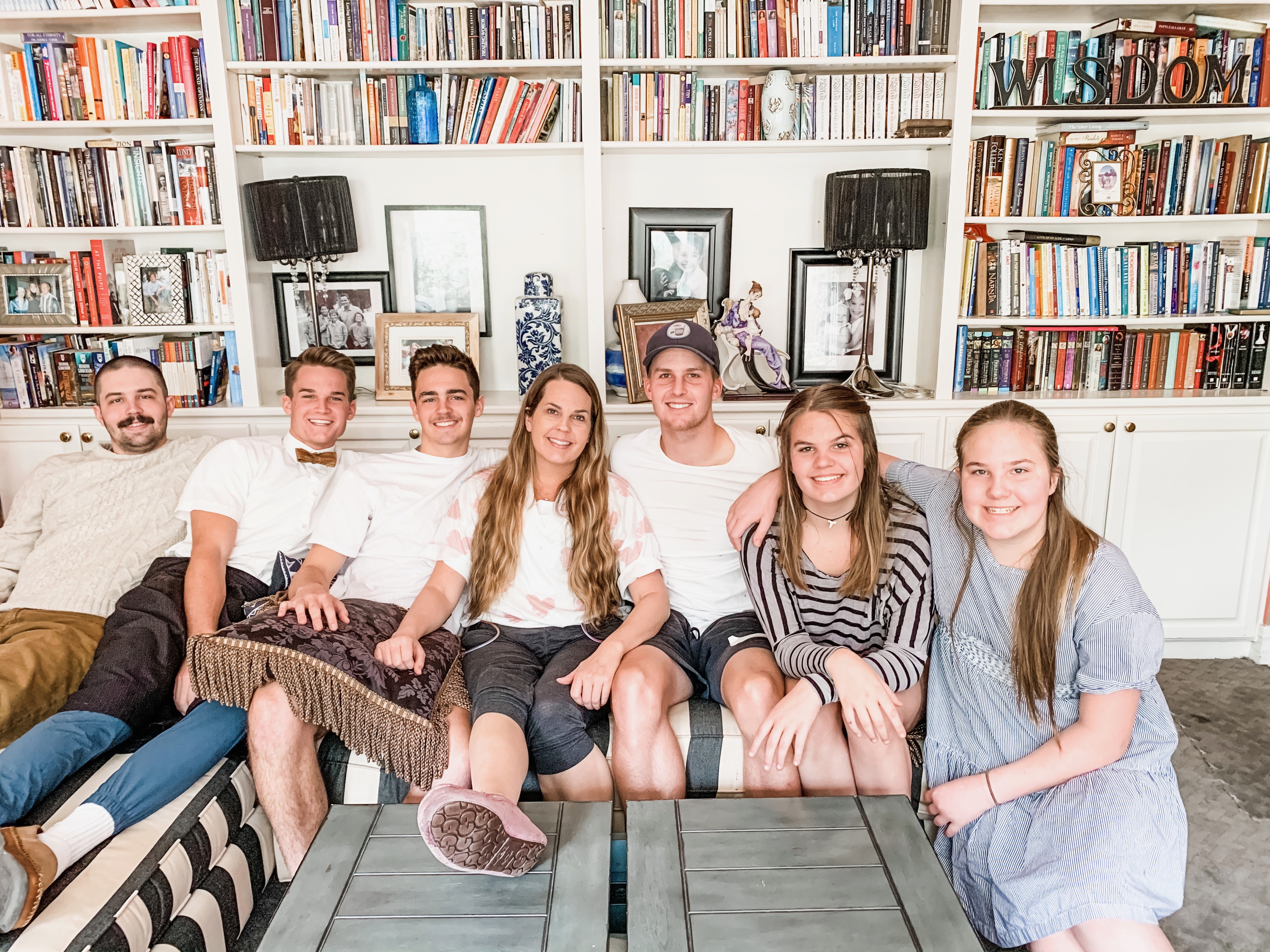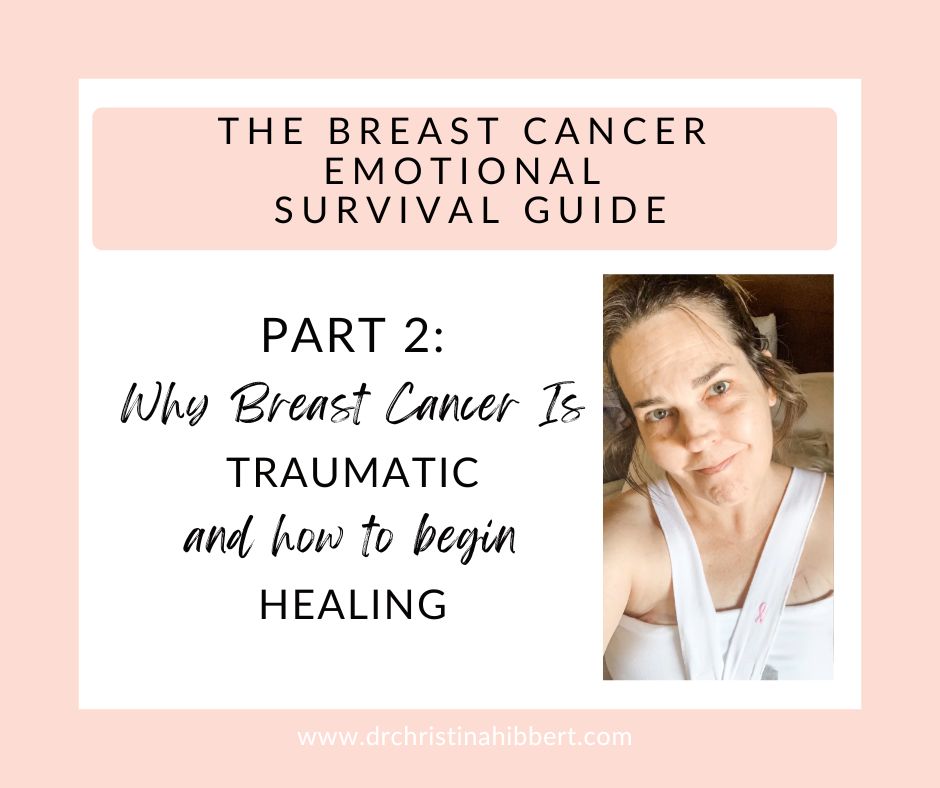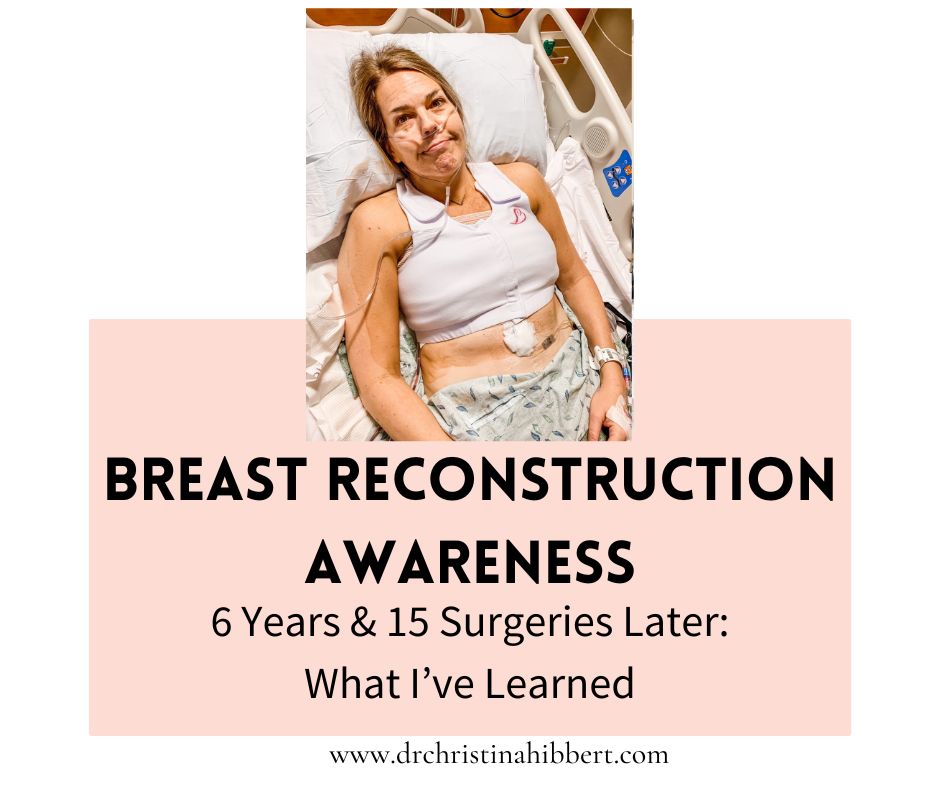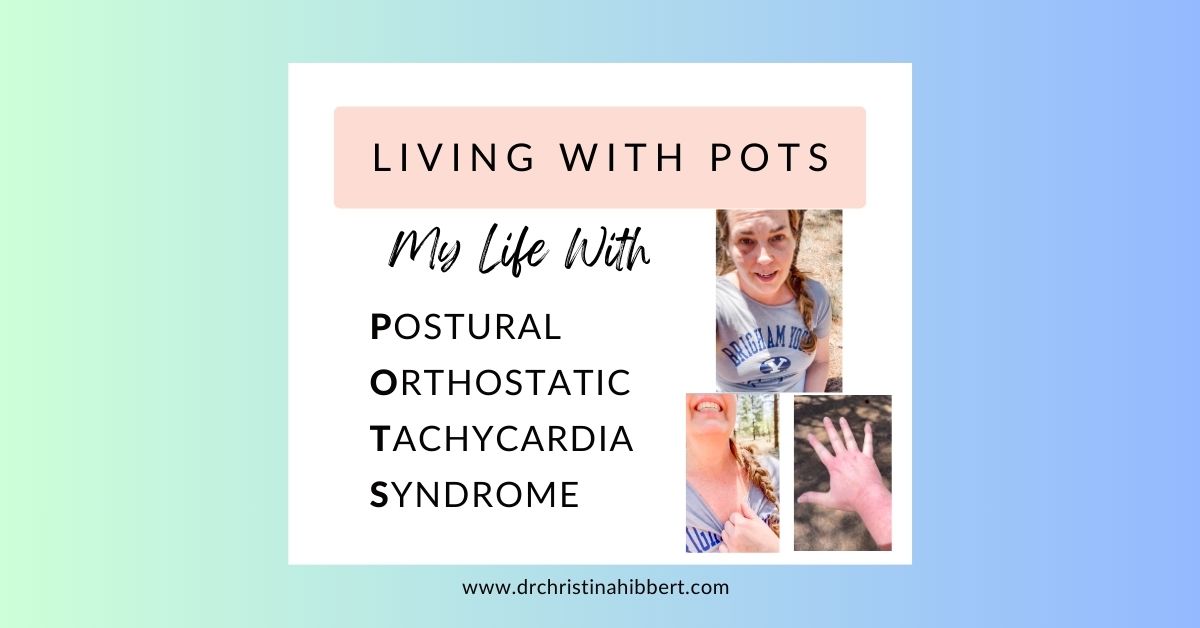Why aren’t we told how breast cancer can devastate not just the body — but the mind, heart, and soul too?
Why aren’t the mental, emotional, social, and spiritual tolls discussed from the beginning — when treatment plans are formed and survival is the only focus?
Why don’t we have just as much of a mental-emotional-spiritual plan as we do a physical one?
The truth is, breast cancer affects all five realms of health equally — physical, mental, emotional, social, and spiritual.
Where there are physical wounds, scars, and trauma, there are almost always mental and emotional scars as well.
And where there are mental and emotional scars, there are almost always a spiritual wound and strain on relationships.
So why don’t we acknowledge this from the start?
Why don’t we create opportunities for real conversation, education, and healing in every dimension of the experience?
It’s an issue I care so much about that I’m actually writing a book about it!
Sign up to receive updates on my upcoming book, Reluctant Warrior: A Breast Cancer Emotional Survival Guide, Here:
May 5, 2020, expander placement attempt 2, my 6th surgery (of 15).
Breast Cancer Breaks More Than the Body
Breast cancer isn’t just a physical illness — it’s a full-body, full-life experience.
When we face a breast cancer diagnosis, our world suddenly narrows to surgeries, chemo, radiation, medications. But at the same time it can also bring:
- Emotions like fear,anxiety, grief,guilt, loneliness, anger, overwhelm, frustration, sadness
- Mental symptoms like brain fog, memory issues, difficulty concentrating, and lack of focus
- Mental health struggles like depression, anxiety, or even PTSD
- Spiritual crises, as faith is tested and questions about life and death, meaning and purpose, arise
- Relational changes, as family faces your illness, support systems shift, and friendships are strained or lost
All of this impacts how we see ourselves.
It changes our sense of identity.
It leaves us asking, “Who am I now?”
And yet, all of this is normal. It’s a completely normal response to an overwhelmingly abnormal experience.
Why Don’t We Talk About This?
If you’ve ever felt misunderstood, dismissed, or deeply alone during or after breast cancer treatment — you’re not the only one.
But you might have been made to feel that way. I certainly was.
This needs to change.
We need to start the mental-emotional-social-spiritual conversation earlier — ideally, at diagnosis — and continue it through active treatment, into recovery, and throughout survivorship, for as long as each individual needs.
Because survivorship isn’t the end of the journey; it’s the beginning of a new one.
And the more we talk about these things, the more we share our stories, the more we normalize how difficult the cancer journey and survivorship actually are.
Mother’s Day 2020, just after my 8th surgery. A huge blessing of COVID? ALL 6 of my kids came home.
What Providers or support people Could Say (and What We Need to Hear)
Imagine if, alongside our treatment plan, our doctors, nurses, family and/or friends said things like:
- “This is what many others experience mentally and emotionally during breast cancer. You might feel the same — and that’s okay.”
- “You may feel shock, denial, fear, sadness, anxiety, grief, loneliness, or anger. These emotions are real and valid. You’re allowed to feel whatever you feel, and acknowledge whatever comes. And I’m here for you as you do.”
- “Breast cancer can be traumatic, from the shock of diagnosis to the intensity of treatment, and even into life after cancer. Here are some things you can do to identify and work through the trauma. You’re not alone. Your experience is valid. We are here to support you to find the help you need along the way.”
- “A breast cancer diagnosis will impact you deeply, and it will impact your family. Your spouse/partner, children, parents, siblings will experience their own version of your treatment and recovery, and it’s important that they feel supported too. Here are some resources for the whole family.”
- “Your relationships will change. You may lose some, strengthen others, grieve the loss of people you expected to show up. Your diagnosis and treatment will likely impact how you connect with others, what you can or can’t do for/with others, and even what your future relationships may look or be like. Keep dialogue open with loved ones.”
- “This experience may challenge your faith or deepen your spirituality–or both. It’s okay to ask questions, doubt, and wrestle.”
- “You may experience symptoms of depression, anxiety, or trauma. It’s not weakness. It’s a normal, human response. And help is available.”
- You may struggle with focus, memory, concentration, and mental clarity. This isn’t just in your head — it’s real, and you’re not alone.”
- “Breast cancer diagnosis and treatment will change you, and you may feel lost at times and wonder, “Who am I now?” It’s very common to feel these things, and please know that it is possible to one day find a new normal again.“
- “You may experience mental and intellectual symptoms through treatment too. It’s a normal part of the process, but it can feel overwhelming.”
- “Survivorship is a lifelong process, and it can feel overwhelming at first. You’re not alone. Here are some resources to help.”
And then — imagine if they followed it up with:
“Breast cancer is hard. Please know you’re not a failure if you experience any of these things, or anything else. It’s normal and even okay to not feel OK as you go through this, and even after. You don’t have to go through it alone. Here are resources to help. Now, let’s talk about what support you’d like in your care plan.”
Where We Go From Here
This is the conversation I wish every breast cancer patient could have. It’s the conversation I wish I could have had.
We can’t erase the pain, fear, or loss that comes with cancer. But we can create space for real healing — body, mind, relationships, and soul.
We do that by talking about it. Naming it. Normalizing it.
By offering each other compassion.
And by growing through what we go through — together.
You are not alone. You are not to blame for how you feel. Help is available, and together, we can create a better experience for ourselves and for the next generation.
This is my mission. This is why I share my journey and what I know as a psychologist. This is what I envision the future of breast cancer treatment and support to be.
Read Part 2: Why Breast Cancer is Traumatic & How to Begin Healing
What do you wish your providers or support people had said or done? What is your vision for the future of breast cancer care?
Comment below!
This is the first in this series, “The Breast Cancer Emotional Survival Guide”.
Follow & SUBSCRIBE to receive the latest articles & my Newsletter.
Related Articles:
Breast Cancer & PTSD: They cut out the Cancer, But not the Trauma
Breast Cancer Trauma & Self-Worth
Breast Reconstruction Awareness
Breast Cancer 5 Year Cancerversary
Ready to Heal Your Self-Worth After Cancer, Illness, or Trauma?
Get my Free Self-Worth Course — designed to support your emotional recovery and help you reconnect with who you are after everything you’ve been through.
Join my ‘Breast Cancer Warrior Emotional Support Group” on Facebook!

